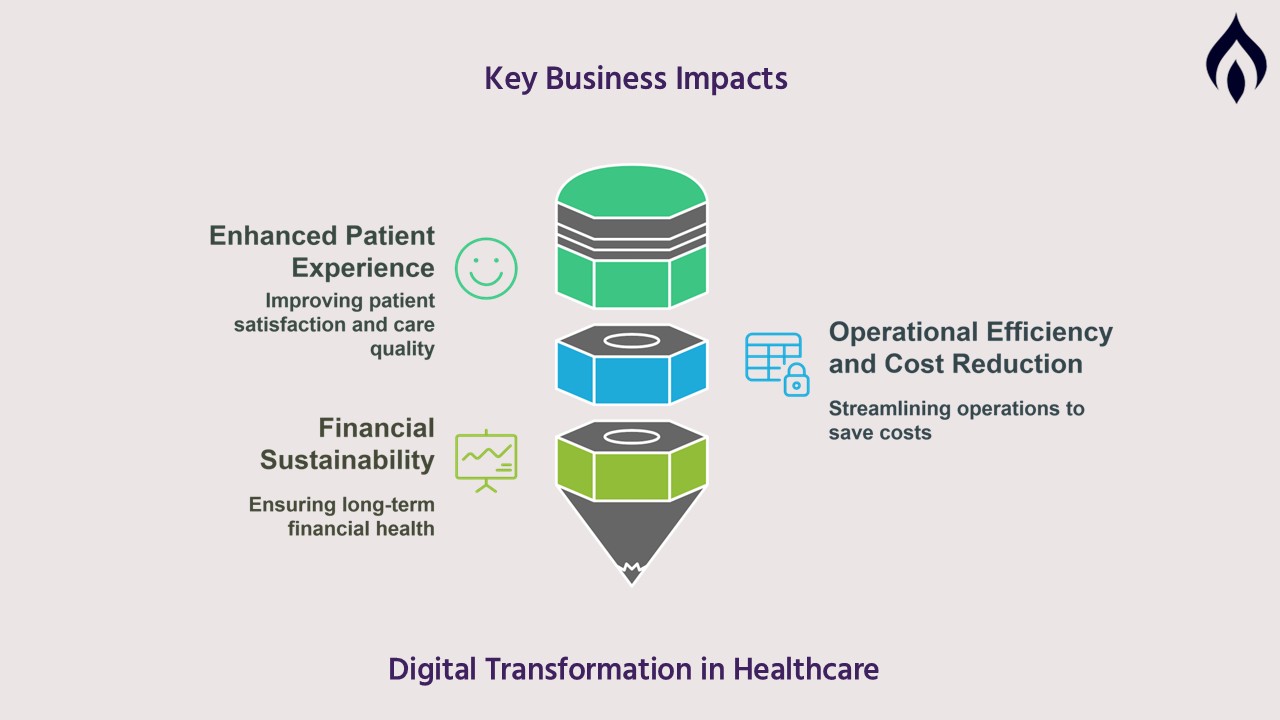
Digital Transformation in Healthcare: A New Era of Innovation
Introduction Digital transformation in healthcare is a major leap in the ongoing effort to pull together technologies to allow for better patient care, efficient operations, and improved financial performance. With that in mind include data, AI, IoT, and other robust frameworks to help redefine healthcare service as a digital strategy is adopted by businesses and organizations. This paper aims at providing a roadmap for digital transformation within healthcare and how technology can be harnessed by organizations in service delivery and financial sustainability.
The Need for Digital Transformation in Healthcare
Challenges confronting healthcare organizations include cost-related matters, inefficiencies, and high patient expectations. Digital transformation in healthcare is giving answers and solutions fueled by the delegation of business intelligence, smart technologies, and a data-driven approach to deal-making.
They would be:
- The demand for personalized and remote healthcare services.
- AI and IoT growth.
- Obligations for regulatory compliance and data security.
- The need for cost-effective healthcare solutions.
Framework Components of Digital Transformation in Healthcare
Smooth digital transition hinges on precise definitions of this framework within healthcare. Its main components are:
- Digital Strategy and Roadmap A digital transformation strategy aligns business objectives with technology implementation. Healthcare companies need a structured roadmap to adopt new technologies while ensuring smooth operations and financial stability.
- Data-Driven Decision Making
Data given underlines digital transformation. The ability to gather, analyze, and interpret vast amounts of patient information empowers healthcare providers to enhance their diagnostics, treatment plans, and operational efficiency.
The AI and The Machine Learning Applications
- AI-based instruments can increase the performance of medical imaging, disease diagnosis, and predictive analytics. Machine learning models analyze patient history to identify potential health risks and suggest preventive measures.
IoT in Healthcare
- IoT devices, wearables, and smart sensors play an absolutely crucial part in monitoring patient health in real time. These are important for chronic disease management as well as remotely rendered healthcare services.
Cybersecurity and Data Protection
- Digitalizing brings a need to secure patient data; hence, securing it remains foremost of the digital services. Healthcare organizations are now looking for more robust cybersecurity measures – blockchain, encryption, and access control systems.
Although digital transformation is for patients, it radically changes the very business models in healthcare. A few key business impacts include:
- Enhanced Patient Experience:
Digital solutions increase the accessibility of healthcare services for patients. From online consultation, AI-driven chatbots, and automated scheduling of appointments, patients are bound to experience a higher level of satisfaction.
- Operational Efficiency and Cost Reduction:
Automated workflows and AI-based diagnostics reduce manual workloads and administrative costs. The healthcare companies will be empowered to optimize resource allocation and improve service deliveries.
- Financial Sustainability:
Digital transformation leads to financial growth by toning down inefficiencies and scaling up services. Through telemedicine, AI based diagnostics, and predictive analytics, the organizations would be able to attain quality care at reduced costs.
Case Studies: How Companies Are Transforming Healthcare
Case Study 1: AI in Diagnostics:
With the help of AI-based tools, a few healthcare companies have been using them in diagnostics. Not only are these effective in decreasing error rates, but they also accelerate the time it takes to diagnose diseases. For instance, AI applications would help to perform an accurate detection of cancer in radiology very early on.
Case Study 2: IoT in Remote Patient Monitoring:
Wearable IoT devices provide real-time monitoring of patient vitals and alert the doctors in case of any abnormality detected. This technology has improved chronic disease management significantly, especially for patients with cardiovascular diseases and diabetes.
Case Study 3: Data-Driven Healthcare Business Models:
Corporate healthcare providers have turned to big data to develop personalized treatment plans, helping improve patient outcomes. Predictive analytics allows hospitals to predict demand and allocate resources efficiently.
Building a pathway to digital transformation which facilitates the introduction of new integrated programs:
This requires a structured approach to the implementation of digital solutions in the health industry:
Assessment and goal definition
- Clarification of business needs and technological gaps
- Defining performance indicators for digital transformation (KPIs)
Technology Selection and Integration
- Select artificial intelligence, IoT, and data analytics tools
- Interoperability of new technologies with existing ones
Implementation and Change Management
- Training for employees and healthcare professionals concerning the new digital tools
- Capacitating for change by holding workshops and providing continuous learning
Monitoring and Continuous Improvement
- Measuring the success of the implemented solutions
- Adapting strategies based on feedback and technological advancements
The Future of Digital Healthcare
Healthcare’s digital future maintains development along with everything from Artificial Intelligence through Blockchain, and the integration of IoT. Organizations invested in digital transformation will maintain improving not only the quality of care but sustaining their finances as well as efficiency.
Conclusion
Digital transformation is no longer an option but is rather an inkling into health care. A slightly articulated digital transformation approach with a clear strategy should go vigilantly towards investment in data set-driven solutions to pivot successfully into a dynamic technology-driven health ecosystem. As AI, IoT, and analytics mature and evolve, healthcare services will efficiently, effectively, and affordably serve businesses and patients in return.

Add a review
Your email address will not be published. Required fields are marked *